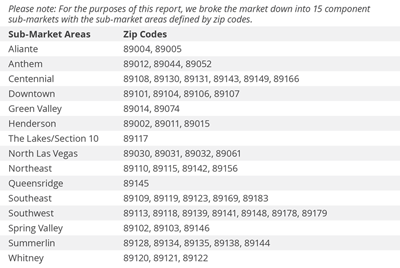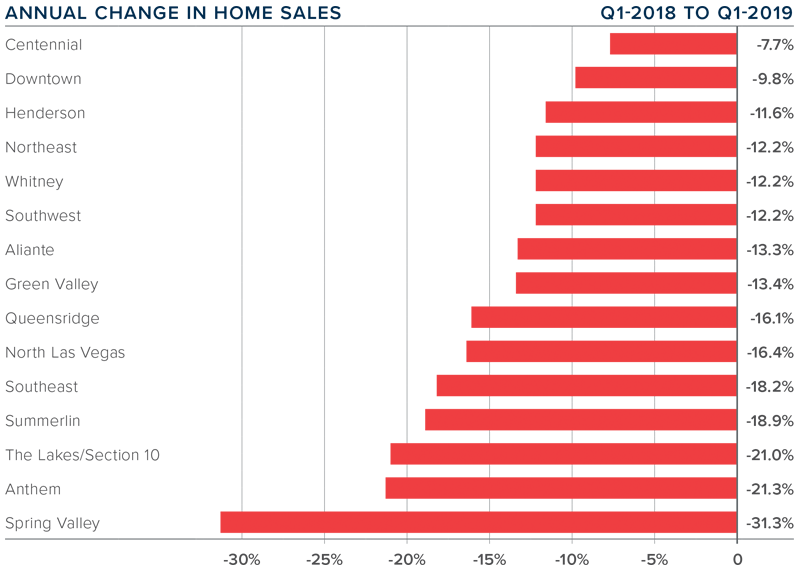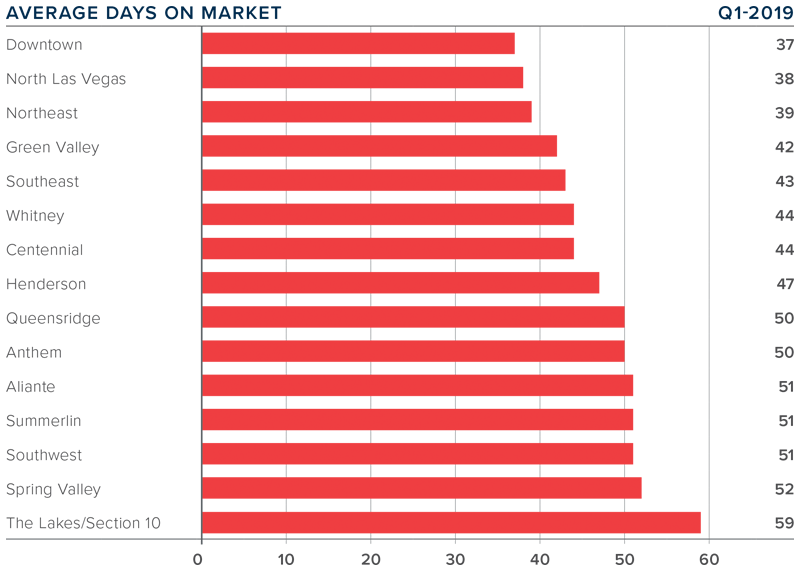The following analysis of the greater Las Vegas real estate market is provided by Windermere Real Estate Chief Economist Matthew Gardner. We hope that this information may assist you with making better-informed real estate decisions. For further information about the housing market in your area, please don’t hesitate to contact your Windermere agent.
 ECONOMIC OVERVIEW
ECONOMIC OVERVIEW
Job growth in the Las Vegas metropolitan area remains robust. A total of 28,000 new jobs were added over the past 12 months, representing an annual growth rate of 2.8%. For perspective, the U.S. as a whole is growing at around 1.7%, or less than half the rate of Las Vegas.
As the labor market expands, the unemployment rate continues to trend lower. The seasonally adjusted rate was 4.2%, down a full percentage point from a year ago but still above the national average. As I have mentioned in the last few Gardner Reports, this is partially attributable to a growing labor force.
HOME SALES
- There were 6,798 home sales in the first quarter of 2019 — a drop of 14.6% compared to the same period a year ago and 9% lower than the final quarter of 2018. It is likely that this slowdown in sales is due to a combination of growing inventory levels that started last summer and rising interest rates. However, mortgage rates dropped significantly in the first two months of this year, so I expect home sales to pick back up in the second quarter.
- Pending sales dropped 2.9% versus the same period a year ago and were down 26.4% compared to the final quarter of 2018. This suggests that closings in the second quarter of 2019 will likely disappoint.
- Sales dropped across the board, with the most substantial dip occurring in the Spring Valley neighborhood. Double-digit contractions in sales were seen in all areas other than the Centennial and Downtown neighborhoods.
- The Las Vegas housing market continues to move toward balance. I maintain my position that there is no cause for panic, but more choice will lead to a temporary slowing in sales as buyers take their time when choosing a new home.

HOME PRICES
- Home prices in the area rose by 6.7% compared to the first quarter of 2018 to an average of $310,890, and were 1.2% higher than the fourth quarter of 2018.
- The increase in Las Vegas home prices is moderating, but the area is still performing better than the country as a whole. Demand is likely to grow as we enter the spring market and I anticipate home prices will continue to rise in 2019.
- Prices in all sub-markets other than Queens Ridge rose when compared to the same quarter last year. The strongest growth was in The Lakes/Section 10 sub-market, where prices were up by 14.4%. Five additional sub-markets saw double-digit price growth.
- Economic growth is leading to rising incomes and this, in concert with attractive mortgage rates, will allow homes to continue to appreciate in value.

DAYS ON MARKET
- The average time it took to sell a home in the region rose nine days compared to the first quarter of 2018.
- Region-wide, it took an average of 47 days to sell a home in the first quarter of 2019.
- Days-on-market rose in all but one sub-market compared to a year ago.
- The only market where the length of market time dropped was in the Aliante neighborhood, which saw a significant decrease from 64 to 51 days. The greatest increase in market time was in Queens Ridge, which rose by 20 days.

CONCLUSIONS
 The speedometer reflects the state of the region’s real estate market using housing inventory, price gains, home sales, interest rates, and larger economic factors.
The speedometer reflects the state of the region’s real estate market using housing inventory, price gains, home sales, interest rates, and larger economic factors.
Employment growth in Clark County remains robust and this is leading to tangible income growth, which can offset increasing home prices. Mortgage rates dropped in the early spring and I expect to see transactional velocities rise as we move through the traditionally buoyant spring months. I still believe the Las Vegas market will be one of the best-performing areas in the Western United States in home price growth in 2019.
 As Chief Economist for Windermere Real Estate, Matthew Gardner is responsible for analyzing and interpreting economic data and its impact on the real estate market on both a local and national level. Matthew has over 30 years of professional experience both in the U.S. and U.K.
As Chief Economist for Windermere Real Estate, Matthew Gardner is responsible for analyzing and interpreting economic data and its impact on the real estate market on both a local and national level. Matthew has over 30 years of professional experience both in the U.S. and U.K.
In addition to his day-to-day responsibilities, Matthew sits on the Washington State Governors Council of Economic Advisors; chairs the Board of Trustees at the Washington Center for Real Estate Research at the University of Washington; and is an Advisory Board Member at the Runstad Center for Real Estate Studies at the University of Washington where he also lectures in real estate economics.
 Facebook
Facebook
 X
X
 Pinterest
Pinterest
 Copy Link
Copy Link



